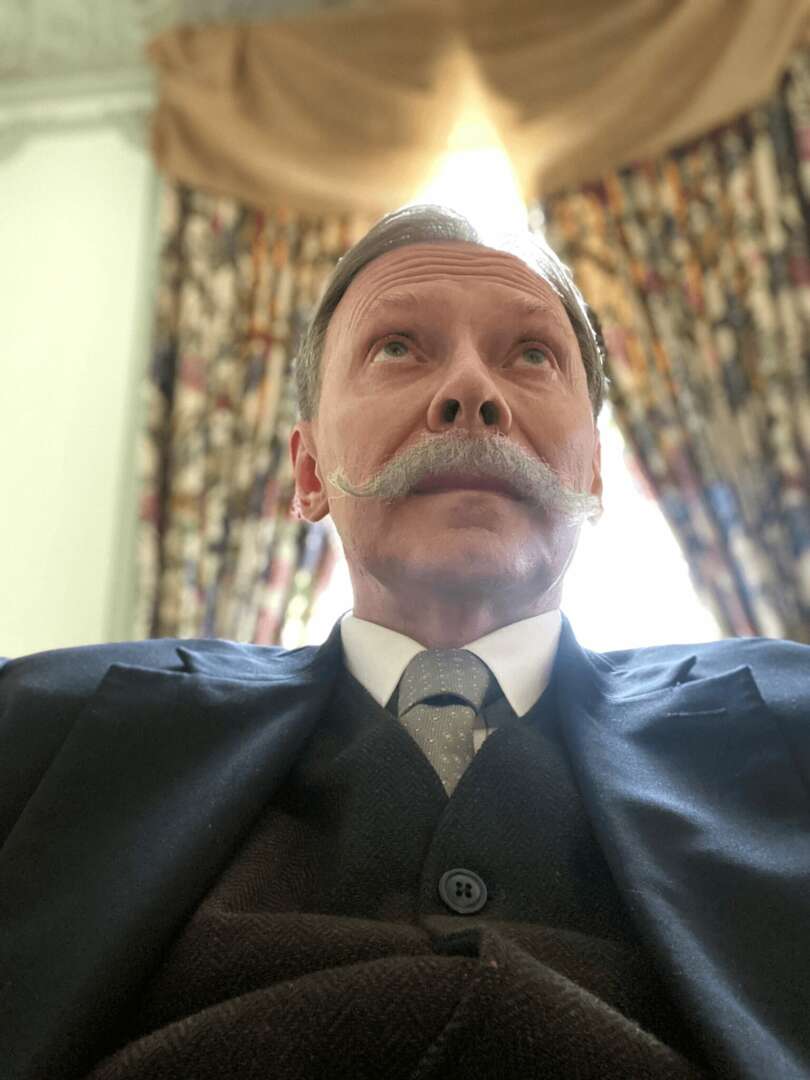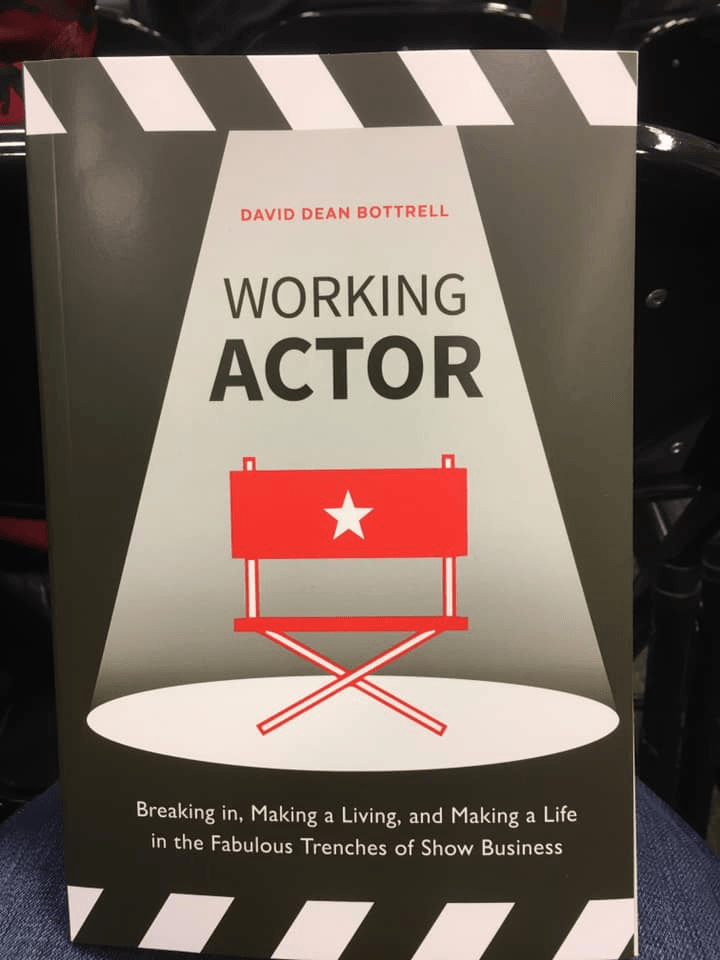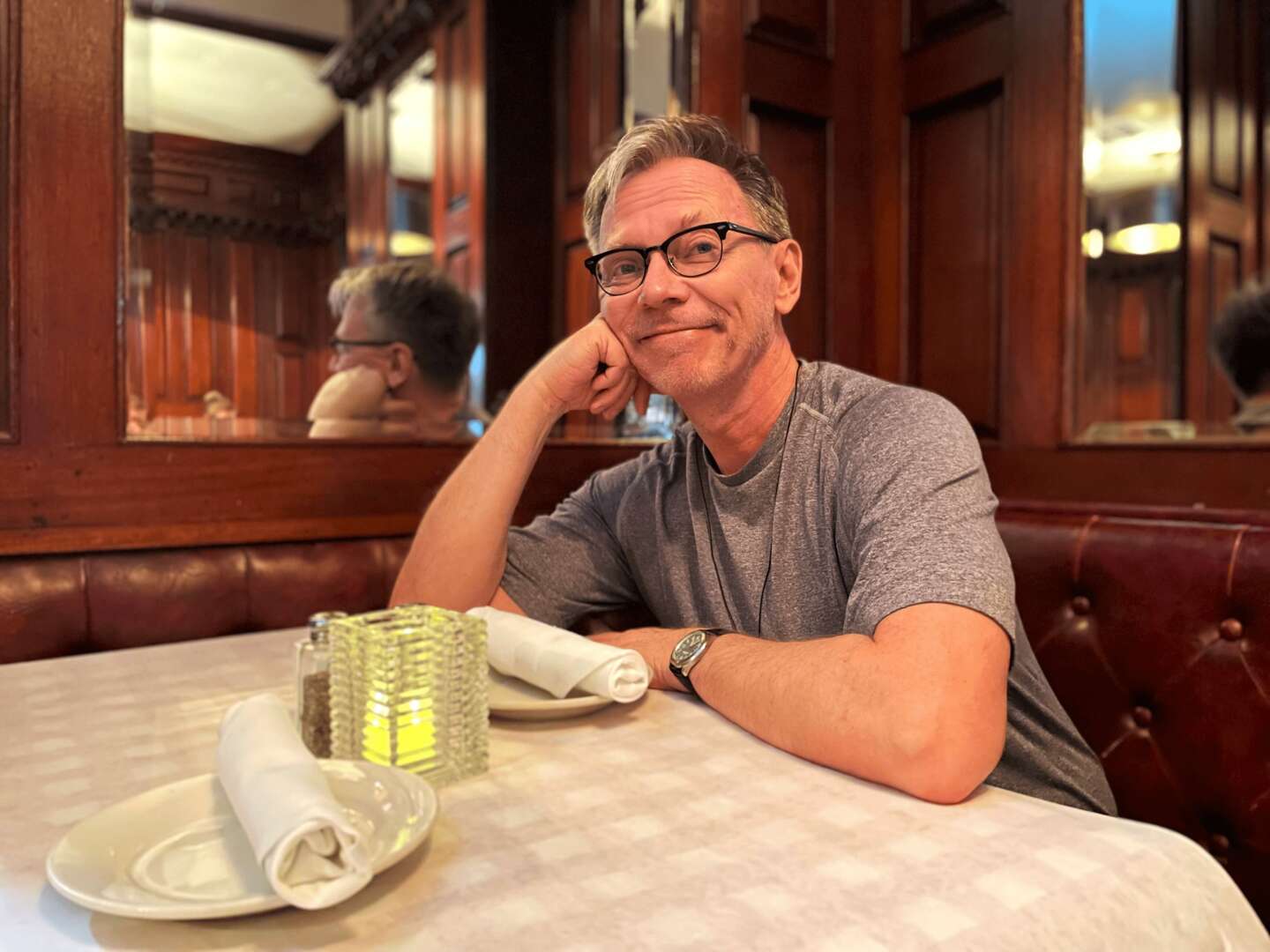We recently connected with David Dean Bottrell and have shared our conversation below.
David Dean, thanks for taking the time to share your stories with us today What do you think matters most in terms of achieving success?
I believe the key to any kind of success is to listen. When I was in my late twenties, I stopped getting acting jobs. Since leaving acting school, I’d had a pretty good run playing teenagers, but suddenly I’d “aged out” of my type. I was terrified, and began to meditate, journal and visualize about what I could do until this drought was over. One day, it came to me that lots of people seemed to like hearing me tell stories about my oddball family, so I started writing them down. Each night when I got home from my catering job, I sat down and wrote. I began working with a writing partner, and the stories became a play. We pooled our money, rented a rehearsal hall and had a reading of the script using the funniest actors we knew. The next day, the phone started ringing. By the end of the week, I had a new job title: playwright, and within a few years, I had another one: screenwriter. To work creatively depends on listening; truly paying attention to what’s shifting around you as well as what is shifting internally. Creative work is rarely about forcing your will on a situation, but about realizing that every project or idea has a certain life of it’s own. Learning to listen deeply is a skill that takes some practice. But when you trust it, it’s like a compass. It will always point you in the right direction. I always try to listen, before I make any important decisions.

David Dean, love having you share your insights with us. Before we ask you more questions, maybe you can take a moment to introduce yourself to our readers who might have missed our earlier conversations?
When I was a teenager I was sure I’d become some kind of visual artist. That is until I became obsessed with a girl who was active in the Drama Club. I was terribly shy and the only way to meet her was to audition for one of the school plays. It was a comedy, and the first time I heard the audience laugh, I was hooked. I tried studying acting in college but I hated it. At age 20, I got myself to New York and studied with a very influential acting teacher named William Esper. From there I started to work professionally in regional theatre which meant I was performing with these established companies up and down the eastern seaboard. I did that for about eight or nine years and it was incredible training since it meant knocking out eight shows a week. The next stop on the train came when I wrote a play that got produced off-Broadway, That led to me stepping away from acting for over a decade to work as a screenwriter in Hollywood. Becoming a writer provided me with a great life lesson. You definitely need talent to write, but you can’t succeed without learning the skills needed like story structure and genre. Screenwriting was/is a tough business and after about 12 years of doing it, I found myself feeling burnt out by the sheer number of cooks in the kitchen. And then a miracle happened, My phone rang and a casting director asked me to read for a small guest star role on David E. Kelley’s brilliant show, Boston Legal. Mr. Kelley took a liking to me and the next thing I knew, he created a massive, challenging arc for my character that stretched out over half the season. It was an incredible experience that handed my acting career back to me on a silver platter. Within a few years, I got interested in teaching acting; something I’ve now done for about 12 years at places like UCLA, AADA, USC and the SAG Conservatory. In 2016, I moved from LA back to New York where (while continuing to work as an actor in TV) I started writing and performing some one-person storytelling shows and a popular “how-to” book called “Working Actor.” Along the way in this journey, I’ve done a little directing and created and co-produced a highly acclaimed Science Fiction Theatre Festival for three years. Like most artists, I continue to look for new opportunities to create and respond to the world we’re living in. It’s not always easy work, but I do it for one reason: because I can. I don’t mean to sound pretentious. There many people with talent and some of them are geniuses; and hugely deserving of the fame and weath that came come with that. I’m not in that club, but I do believe that if you have some ability, it’s sort of sin to not use it. You just have to trust that it’s what you came into the world to do.
Looking back, are there any resources you wish you knew about earlier in your creative journey?
When I first started out, I didn’t have a clue what I was getting myself into. Being an artist is such a weird profession. YOU are the product or service that you’re selling. It’s enormously personal work. And in the beginning being rejected was devasting to me. One of the biggest lessons I wish I’d learned earlier was that I’m never alone in this process. I don’t have to generate everything from some dark interior chamber of my soul. It took me some time to figure out that if I wanted to be good, I needed to be curious about the world and the people who populate it. I needed to experience the work of other artists — including the work done by people who’ve been dead for centuries. The most important shift I can remember was when I was about 33 years old, and I had been imported to Hollywood to work in the movie business. I was, at the time, a New York theatre nerd who loved independent films. I was quickly learning that big studios were not interested in obscure little tales would not make money in the multiplex. I knew I had to find a way to take my talent & sensibilities and channel them into another form of writing. So, I went to my neighborhood Blockbuster store! Remember those? Armed with pad and pencil, I scoured the aisles and aisles of videos, looking for successful studio films that I’d genuinely enjoyed watching. I was shocked by how long my list got within a half an hour. I went back home, stared at the list and asking myself “Okay, what is YOUR version of this movie?” It sounds silly, but it taught me how to work in a new format without losing what I uniquely could contribute. Soon, I began to sell pitches and make money. But most of all, it taught me the importance of inspiration — that to be good, you have to keep refilling the well with new ideas, experiences and skills. You have be curious. So that when you reach into your imagination, you’re guaranteed to pull up something up — something that will keep you alive creatively.

For you, what’s the most rewarding aspect of being a creative?
When I first started out as a performing artist, the part I found most rewarding was how the experience made ME feel. My devoutly religious family trained me well to always strive to be humble and unnoticed. Just to be seen was sort of orgasmic to me. In those days, the whole idea of having a career was just a vague dream. But after a few years, most of us begin to understand how hard and competitive it can be. If you’re going to stay in it, you truly have to know why. Now, as I start my fourth decade of doing this kind of work, I think the greatest reward is creating some truth, because truth is the only thing that will draw an audience toward you. I don’t want to sound pompous, but if you gain a career, if you continue to work, it’s because you have learned how to deliver some truth. In my humble opinion, when we manage to do that – to bring something universal, understandable and honest into the room – everybody feels – I guess “present” is the right word. And feeling present is such a magical state. It releases something. It’s very healing. I love being a part of that experience. The terms “the arts” and “entertainment” are interchangeable to me. It never goes out of style, because it’s needed. Sometime I fail and sometimes I succeed, but I’m deeply grateful to be doing this work.
Contact Info:
- Website: https://www.DavidDeanBottrell.com
- Instagram: @daviddeanbottrell
- Facebook: https://www.facebook.com/daviddean.bottrell
- Other: https://www.tiktok.com/@daviddeanbottrell

Image Credits
The headshot credit is Phil O’Brien
The others are Neil Hemnarine


